As treatments begin to slowly change how we manage the COVID-19 pandemic, many California employers still require vaccinations. While the vaccine itself isn’t mandatory, an employer is legally allowed to make it so as long as it doesn’t interfere with a protective status.
The COVID-19 pandemic has caused tremendous disruption for working-class Americans across the country. Each state developed different methods of fighting the pandemic, following guidance issued by the Centers for Disease Control and Prevention (CDC), the National Institute of Health (NIH), and various other federal agencies. While some of the measures implemented helped reduce the pandemic’s impact, others did not. One aspect of fighting the COVID-19 pandemic has been the vaccines introduced toward the end of former President Donald Trump’s term and distributed under the Biden administration.
If you work in California and have not received any COVID-19 injections and do not wish to do so, you could face some problems when it comes to your employment. Your employer has the right to require you to receive FDA-approved shots if you wish to remain employed. However, your employer may not violate federal employment discrimination laws or California’s religious or medical exemption statutes under the California Department of Fair Employment and Housing (CFEH) Act. An experienced attorney can provide invaluable guidance if you become involved in any COVID-19 injection-related dispute with your employer.

Understanding the Vaccine Debate
Despite their effectiveness in preventing hospitalizations and deaths, the COVID-19 vaccines have been a significant point of contention for many people across the country. The Biden administration attempted to mandate that all private employers with more than 100 employees require COVID-19 vaccinations, but this proposal was struck down. However, the federal government continues to encourage employers to mandate COVID-19 injections for their employees, and many employers throughout California require workers to receive these shots of their own volition.
It is understandable to be hesitant about taking injections containing medical technology that has never been used before. However, if your employment is at risk, it is vital to carefully assess your options so you can make more informed decisions. For example, if you believe a recent termination in California was wrongful and based on your protected medical or religious status, you may have grounds for legal action against your employer.
Employer’s Rights and Responsibilities for Hiring and Firing
It’s important to keep in mind that religious exemptions to vaccinations aren’t automatically granted. If seeking a religious exemption, you must prove you have a sincerely held spiritual belief that is not scientific or philosophical. To learn more about how to claim a religious exemption, contact our firm.
California employers must adhere to the Equal Employment Opportunity Commission (EEOC) rules while observing the latest guidance from the CDC. This means that employers generally have the right to mandate FDA-approved medications and treatments if they believe doing so would suit the best interests of their employees. However, they may not violate federal EEOC statutes in doing so. This means an employer cannot discriminate against an employee for their medical status, which includes their vaccination status.
If you believe your employer has violated your rights under the EEOC or California DFEH, it’s vital to report any illegal discrimination you encounter to an experienced attorney as soon as possible. Ultimately, if you have any legal questions regarding COVID-19 shots and your employment, a skilled and knowledgeable attorney will be able to answer them.
FAQs
Q: Am I Required to Get Vaccinated Against COVID-19 for Work?
A: California employers are permitted to require their employees to receive FDA-approved vaccines to continue working, but they may not take discriminatory action against employees based on their medical status. If you do not wish to get vaccinated against COVID-19 and an employer requires it, seeking a medical or religious exemption is likely the best option in this situation. If you believe a recent firing regarding your COVID-19 vaccination status was wrongful in any way, consult an experienced employment attorney about your best options for legal recourse.
Q: What Exemptions Are Available for COVID-19 Vaccines?
A: Medical exemptions may relieve workers with certain medical conditions, but these can be difficult to obtain. Religious exemption from medical treatments is the most widely upheld and robust protection available to anyone who does not wish to have a COVID-19 vaccine as mandated by an employer. An experienced attorney can be helpful in this situation and cite the case law relevant to your situation. You do not need to provide specifics of your religious beliefs to justify a religious exemption; religious exemption is a right that you assert, not a privilege you request. If an employer attempts to negate your religious exemption in any way, you should speak with an attorney immediately.
Q: Is COVID-19 Over in California?
A: According to the most recent data, COVID-19 death rates remain high throughout California, accounting for more deaths in Los Angeles County in the early part of 2022 than car accidents. COVID-19 is not “over” per se, but public health mandates have relaxed somewhat in recent months, and many people feel as though life has returned to normal in several ways.
Q: Is COVID-19 Still a Threat?
A: The CDC recently updated its COVID-19 guidance to indicate there was no further need to treat vaccinated and unvaccinated individuals differently when it comes to stopping the spread of COVID-19. Additionally, it’s advised for all California residents to use their best judgment when it comes to limiting their own exposure and reducing the risk of exposing others if they think they have been infected.
Contact English, Lloyd & Armenta for Questions Today
Vaccines are becoming less controversial as effective treatments become more mainstream. Your employer may still require COVID-19 vaccinations, however.
Ultimately, you may have many other legal questions about your vaccination status in regard to your employment. English, Lloyd & Armenta has years of professional experience helping clients throughout California with very difficult employment disputes. We can review your recent vaccine mandate-related issue to help you determine your best options for resolving the matter. Contact us today to schedule a consultation with a California employment attorney you can trust.

